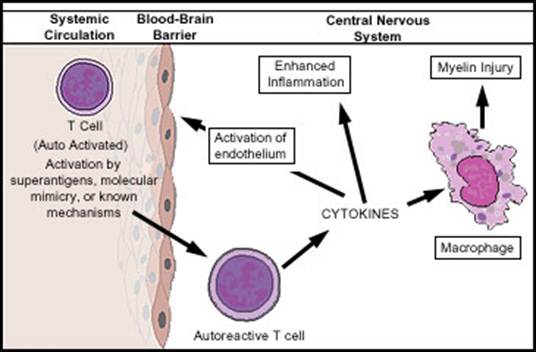Jacqui L’Ange was diagnosed with multiple
sclerosis 10 years ago. Fortunately the disease hasn’t stolen away her sense of
humour or her lust for life. She shares her three “no-brainer” life lessons.

“Houston, we have a problem.” These are not
the words you want to hear when the first neurologist you’ve ever met is
looking at an MRI scan of your brain. He pointed out white spots dotted all
over my otherwise impressive-looking grey matter and asked me if I’d ever heard
of multiple sclerosis (MS). I said I had, but really had no idea what it was
about. He told me it was an autoimmune disease that affects the body’s nervous
systems, eating away at the myelin of the brain and spinal chord.
He told me not to go looking it up on the
internet, because I would just scare myself. He said that everyone experienced
MS differently – one of his patients was a man well into his 70s who still
sailed his own boat and suffered from little more than a numb toe; another was
a young woman severely disabled and in a wheelchair. Then he went off to a
conference in the US (in Houston, quite possibly) and I never saw him again.

Multiple
Sclerosis (MS)
Of course I ignored his advice and looked
on the internet. (He was right – the amount of information was formidable). I
also saw a number of other doctors for second opinions because, nice as he was,
I just couldn’t wait the weeks until his return to get more clarity on what my
body was doing to me.
I needn’t have been in such a hurry. This
thing was going to be with me for life, and I would have plenty of time to go
through the anger-denial-acceptance-depression cycle, again and again. Along
the road I would learn many things.
Ebb and flow

MS:
An autoimmune disease
I call most of the things MS has taught –
is still teaching – me “no-brainer”. Not just because I have holes in my head
(and a sick sense of humour) but because they are things we all know we should
do, but often don’t. Simple things that really make a difference, whether you
have a “dread disease” syndrome or not.
Sooner or later we all wake up to the fact
that eating well, getting enough sleep, and keeping as fit as you can is good
for us. For someone with MS, it can make the difference between living a normal
life or one that is cruelly compromised.
And even then, sometimes not. I’m
fortunate, as these things go. The kind of MS that I have – the relapsing and
remitting kind – allows me periods of sparkling good health and energy in
between episodes or relapses. And I bounce back relatively quickly when I do go
down. (One doctor called one such recovery “miraculous” – but maybe that was
because I had opted not to take the medication she’d prescribed.)
Other people are not so lucky. MS is not
something you can be prescriptive about. Even the medical fraternity doesn’t
really understand it. Are there genetic, environmental, lifestyle factors?
No-one is certain. One thing they do all agree on is that it’s stress-related.
(And who isn’t stressed?)
Since being diagnosed 10 years ago, I’ve
tried conventional and alternative medicines, simplified my lifestyle,
reconnected with yoga, and followed an MS diet – but only after my scone-making
phase. I found that kneading dough was a great way to wake up the sensations in
my hands. As was stroking cats. Or dogs. Or my child’s flaming red hair.
During my second relapse, I remembered the
kneading therapy and started making pies. I used macadamia nut oil instead of
butter because it seemed like a healthier fat. I made blueberry, apple, rhubarb,
quiche. Open pies, covered ones, lattice-topped, wheat-free. I found a key-lime
pie recipe that required condensed milk and blew any dietary restrictions out
of the water. I put on a few kilos, but I was having fun, which, under the
circumstance, trumped any dietary regulations.

“I’m
in awe of the way my body works, even when it doesn’t. I marvel when it finds
other ways to get signals through” – Jacqui L’ange.